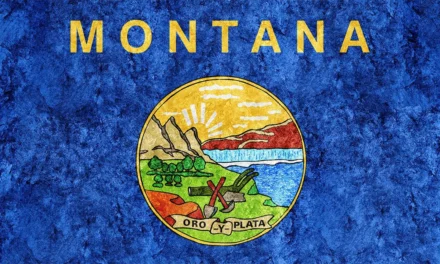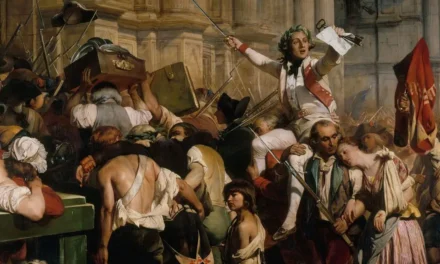The long-running “Saturday Night Live” TV show first arrived in the 1970s, rooted in great comedy from Chicago’s “Second City” group. Icons like John Belushi, Gilda Radner, Chevy Chase, Dan Ackroyd and Garrett Morris brightened many Saturday evenings for legions of fans.
One of their early skits was “With a Name Like Fluckers, It’s Got to Be Good!” The skit parodied a commercial for a brand of jam. They joked about alternative jam names, proposing new brands like “Nose Hair,” “Dog Vomit,” and “Painful Rectal Itch.” As in “With a Name Like Painful Rectal Itch, It’s Got to be Good Jam!”
Let’s fast forward, after years of government policies sold with branding efforts like the “No Child Left Behind Act,” the “PATRIOT Act,” the “The American Rescue Plan,” and the “Inflation Reduction Act.”
In recent decades, student loans have been the fastest growing “asset” on the balance sheet of the U.S. federal government. Student loans are now the largest asset on that balance sheet.
The federal government has long been involved in student education financing, either by guaranteeing “private” creditors or lending directly to students themselves. But in 2007-2009, amidst the worst financial and economic crisis since the Great Depression, the US government doubled down on direct lending. Growth in the reported loan asset on Uncle Sam’s books accelerated. The flow of money helped calm the waters, at least temporarily, amidst an economic (and jobs) crisis.
Meanwhile, the massive subsidy contributed to faster growth in tuition costs. An effort advertised to improve college affordability arguably had the opposite result. But in recent years, the current Administration has worked hard to “forgive” many billions of dollars of outstanding student loans.
A current webpage for the U.S. Department of Education is titled “Student Loan Forgiveness.” They inform people that “In certain situations, you can have your federal student loans forgiven, canceled, or discharged. That means you won’t have to pay back some or all of your loan(s).” The Department of Education then asserts that “The terms ‘forgiveness,’ ‘cancellation,’ and ‘discharge’ mean essentially the same thing.”
Is this manna from heaven?
Aren’t we supposed to forgive people? But wait a minute. What do you forgive people for? Did all those students do something sinful?
Back in 2007, the balance sheet of the U.S. Government included an asset titled “Loans Receivable, net” of $232 billion. That’s where student/education loans were. On the latest (2022) balance sheet, the “Loans Receivable, net” account amounted to $1.4 trillion, six times as high as in 2007. The 2022 total actually declined from 2021, however, with student loan “forgiveness” reducing the “asset.” Once forgiven, the expected future repayments evaporate from future government resources.
Students whose loans are forgiven may be better off. Given that many forgiven loans have been in a program called “Public Service Loan Forgiveness,” many government workers, specifically, are better off. And the colleges they attended took in more money, at least in the short run.
Following the massive 2008/2009 bailouts for large financial institutions, giving and then forgiving many billions of dollars of loans for young people and their families may have helped mollify some of the masses (and academia). Considering the cost of that mollification, however, perhaps student loan forgiveness should be viewed as another element of the socialization of losses generated by our government’s roles in causing and ‘curing’ the financial crisis of 2008-2009.
Have we moved toward greater socialization of higher education, akin to what we’ve done to our banking industry?
Average Joe and Jane taxpayers provide all this money to begin with. Forgiving student loans for some people has not-so-good consequences for other people. The hand the giveth can also taketh. That’s how the less-than-visible hand gives it out in the first place.
Student loans did not go unmentioned in the 2022 Libertarian Party platform. In Section 2.7 (“Money and Financial Markets”) the platform stated, “We support ending federal student loan guarantees and special treatment of student loan debt in bankruptcy proceedings.” The federal government’s role in student loans is not restricted to guarantees. This element of the platform might deserve some attention and/or amplification in 2024.
With a name like “Forgiveness,” is this just good jam? If not, what should we do about it? Should we just forgive the forgivers?
The opinions shared here do not necessarily represent the official position of the Libertarian Party. These editorial articles have been submitted by Libertarians across the country, and featuring these topics does not represent an endorsement of the content therein.




Fascist Deep State World Mystery Secret Brotherhood Babylonian Saturn Negative Energy Code Druid's Greatest Secret Occult https://www.youtube.com/watch?v=KxTYwNADspM
Thanks for helping elect this right wing carpet bagger. Can’t wait!
I may have to change my affiliation with the lp after reading about an assassination post out of New Hampshire!…
Those are very valid points, and yet many people in this country can't undermine the republic and its foundations fast…
Agreed. The only alternatives I can see to BGB's ballot stuffing are open ballots (though the counters may just be…